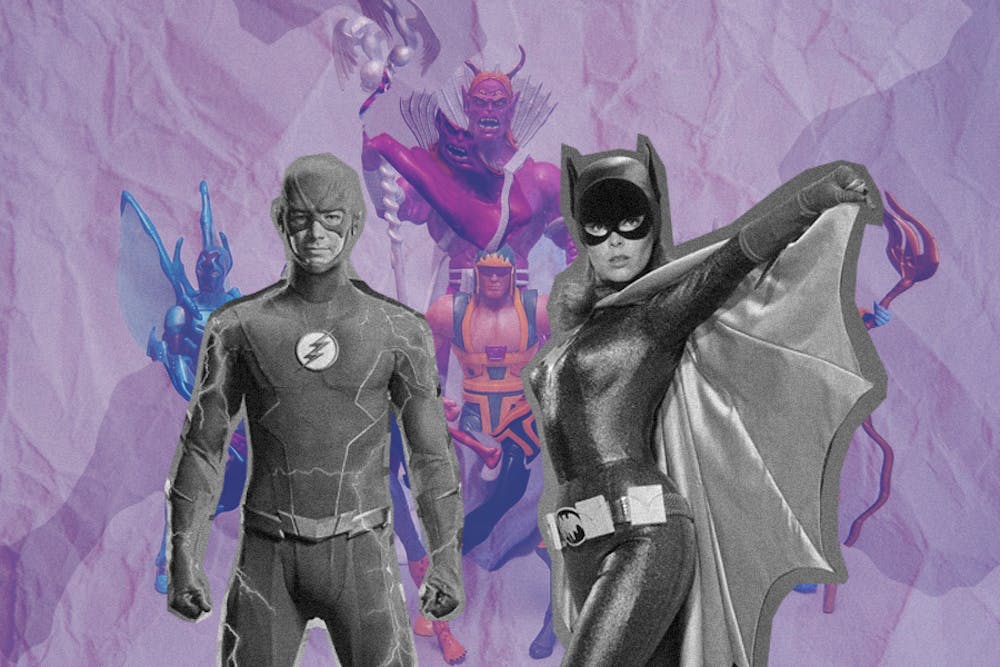This summer, Warner Bros. Discovery went on a cost–cutting spree, removing films and shows from its streaming service, HBO Max, and permanently shelving a number of upcoming projects. One of these projects was DC Films’ Batgirl, a $90 million film in post–production that was set to be a part of the DC Extended Universe (DCEU). Originally scheduled to be released on HBO Max in December 2022, Batgirl was shelved to serve as a tax write–off for Warner Bros., according to Variety. DC Films’ handling of Batgirl and its cancellation is one of many problems the studio faces in the upcoming months, as its future slate of films remains uncertain.
The other looming issue at Warner Bros. is what to do in regard to The Flash: The $200 million film that is rumored to reset the DCEU and stars the increasingly problematic Ezra Miller. The actor has made headlines this past year for all the wrong reasons, including disorderly conduct, assault, and felony burglary. Miller most recently was accused of grooming, and emotionally manipulating a teenager.
The Flash is still scheduled to be released in theaters in 2023, receiving some of DC’s highest test screenings since Christopher Nolan’s Dark Knight trilogy. Yet, its fanfare can’t overshadow the controversy surrounding the title star, whose behavior has left Warner Bros. Discovery uncertain over whether to release the costly film in theaters, direct to HBO Max, or shelve it entirely.
As social media erupts with the news of Batgirl’s cancellation and Ezra Miller’s laundry list of legal issues, fans and critics alike wonder if it’s possible to revive the DCEU. But after years of controversy and big–budget failures, is there even a franchise left to save?
In justifying Batgirl’s cancellation, President and CEO of Warner Bros. Discovery David Zaslav stated that the company is “not going to put out a movie unless we believe in it.” But then why would DC Films make a movie they deemed “irredeemable” in the first place? It’s no surprise that the studio’s wishy–washy decisions have handicapped Batgirl: The DCEU has never been a calculated, coherent cinematic universe, nor valued the characters that keep it alive.
Since its inception in 2013, the DCEU, which is produced by DC Films, has always been a concept left gasping for air, struggling to make a name for itself against the larger and more popular Marvel Cinematic Universe (MCU). When the DCEU began, it featured some of the world’s most recognizable characters like Batman, Wonder Woman, and Superman. At the time, the MCU’s first superheroes, Iron Man and Captain America, were C–tier comic book characters. So, why is it that the MCU has achieved the status of a cultural phenomenon, while the DCEU flounders and fights just to keep its head above water?
Marvel Studios President Kevin Feige has perfected a consistent—if tired—formula that reliably turns a profit: big–budget action sequences, CGI, Easter eggs, and nonsensical banter. The MCU may rely on repetitive, generic narratives, but it churns out plot lines that connect with other films and characters like clockwork.
On the other hand, the DCEU releases convoluted, haphazardly thrown–together stories that ignore world–building and character development, striving for a spectacle akin to what Marvel releases but cranking out critical flops instead. Batman v. Superman: Dawn of Justice, for instance, was full of mistakes, including a dreadful characterization of Batman, laughable pacing, and underwhelming action sequences. In this iteration, Batman, known for his no–kill rule, kills without remorse. Meanwhile, Superman is a misguided, unempathetic “hero” whose death in the film lacks any weight. The DCEU doesn’t seem to understand its characters, and it doesn’t spend enough time with them to justify these weak creative changes.
The DCEU has had nine years and ten movies to implement its vision. Yet every year, the DCEU can’t find its footing, causing the franchise to fade further from public consciousness. The DCEU has no consistent leadership and without a figurehead like Feige, its movies are disjointed and vary in quality.
What separates the MCU and DCEU further is that the MCU invests time into its heroes. Marvel plays the long game, and it pays off; four of the six main characters in the original The Avengers were introduced in solo films before the mega-blockbuster's release. Because of these earlier introductions, The Avengers felt like a culmination of events and something that was earned. However, whenever the DCEU attempts to replicate an Avengers–like success, it plops people into these large team–up movies without establishing their character beforehand. While Marvel meticulously plans its films ten years in advance, the DCEU cancels films slated that same year.
Over its 9–year run, five DCEU movies have attained a “rotten” rating on Rotten Tomatoes (Wonder Woman 1984, Man of Steel, Justice League, Batman v Superman: Dawn of Justice, and Suicide Squad). For reference, only one Marvel movie has achieved the same (Eternals). This is even more staggering when you consider that the MCU has released 29 films to date; the DCEU has only released ten.
Even if The Flash ties up loose ends and reboots the franchise as rumored, it’s unlikely they’ll do it right; a franchise that frustrates more than it entertains is one that is destined to fail, and the DCEU seems determined to disappoint. Before Warner Bros. Discovery leadership considers the train wrecks that are the Batgirl and Flash controversies, they must evaluate the train wreck that the DCEU was before these films. Misguided, almost–laughable decisions are nothing new for DC Films’ management, and it’s not a trend they seem very keen on abandoning despite their grandiose promises to be akin to Marvel. You see, the DCEU isn’t dying like many believe. It’s already dead.







